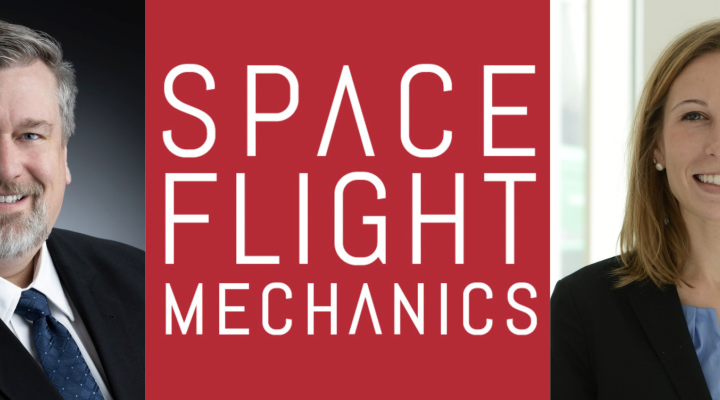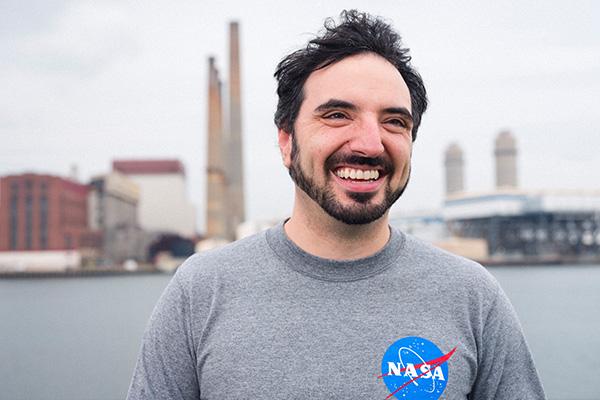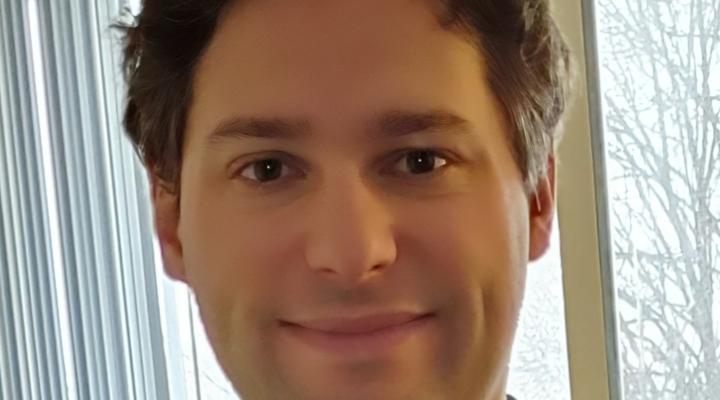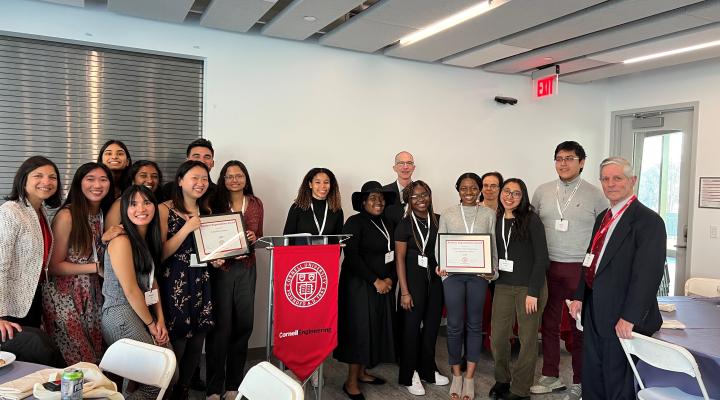Gregory Falco graduated from Cornell with a B.S. in hotel administration in 2010. It is not likely at the time that Falco would have predicted he would be starting as an assistant professor of mechanical and aerospace engineering at Cornell in 2023. But given his wide range of interests and abilities, he might not have dismissed the idea out of hand, either.
While majoring in hotel administration, Falco also took classes in energy control systems while working as business manager in an applied mechanics lab. “I found the idea of ‘any person, any study’ really holds true at Cornell,” Falco said. “I majored in hotel administration, but I took classes all over the University. The people skills I learned from the hotel school were equally important and useful to the technical skills I picked up in engineering and sciences courses.”
One of the things Falco learned at the time was what an amazing place NASA’s Jet Propulsion Lab (JPL) in Pasadena is. “I kept hearing it from all these engineers in the lab,” Falco said. “they’d come back from a summer JPL internship and all they could talk about was what a cool place JPL was. I decided then and there that I needed to get to JPL and check it out for myself.”
It didn’t happen right away, but eventually Falco was able to confirm that yes, indeed, JPL is “the best place to work. Ever.”
When he left Cornell, Falco worked for the consulting firm Accenture while simultaneously earning a master’s degree in sustainability management from Columbia University. After Accenture he decided to go back to school for a doctorate in cybersecurity and ended up at MIT. While there, he took part in a hacking competition sponsored by JPL. He did well in the competition and that led to a conversation with JPL representatives and that led to JPL funding Falco’s Ph.D. studies.
Those studies focused on the intersection of critical infrastructure and cybersecurity. In spite of the importance of keeping critical infrastructure systems safe, there was not a lot of research or funding being directed at the area. “My advisors at MIT took a chance on me and JPL saw the value of the research in the context of securing their space systems and they stepped up with support and guidance and I managed to do some important research,” Falco said.
In 2021 Falco joined the faculty of Johns Hopkins University and in 2023 he moved to Cornell Engineering’s Sibley School of Mechanical and Aerospace Engineering. His lab, the Aerospace ADVERSARY (Autonomy, Defense, and Vulnerability Exploitation for Resilient, Secure and Assured Risk/Yield) Lab, now has several projects with a common goal: to break aerospace systems. A guiding principle of the work is “if you don’t know how to break it, you don’t know how to fix it.”
Cornell is an excellent fit for his work and Ithaca is an excellent fit for his family. “The people we have met and live near in Ithaca truly seem to care about the community,” Falco said. “And the community of researchers here is such a good fit for me. There are a lot of people whose work overlaps with mine either a little or a lot. When I talk about space systems design here, people understand what I am talking about.”
At Cornell, Falco is focused on the security of space systems. As you might imagine, this covers a wide array of technologies and environments. Some key parts of space systems are based on the ground. Others are in space. Some of the systems handle communications. Others provide power or capture images. Broadly, Falco and his students take an adversarial approach to each system and every component, asking ‘if somebody were intent on breaking this thing, what might they do?’ And then they engineer solutions to these threats.
Their work includes helping to formulate policies that will make the possibility of a bad actor breaking or hijacking a system less likely. The team includes lawyers, political scientists, computer scientists, and of course, engineers. Falco is also open to working with undergraduates in his lab. “There is a big pool of aerospace engineers here and I am very excited by that prospect,” Falco said.
When not thinking about how to break things in service of making them safer and stronger, Falco spends a fair amount of time on weekends using the remnants of his skills from the required culinary class he took at the hotel school, baking for his family.






